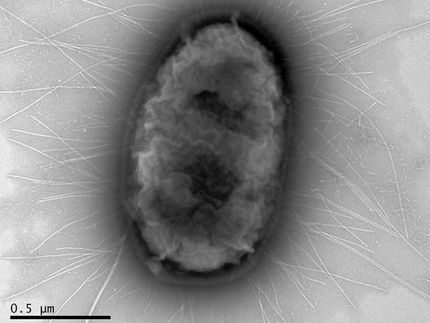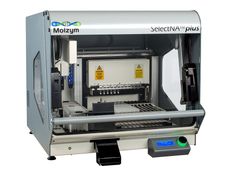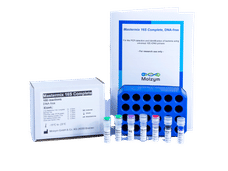Purdue biodefense technology project awarded $1.3 million NIH seed grant
Advertisement
Purdue University researchers have developed a technology that has the potential to more quickly identify food-borne pathogens, aiding U.S. homeland security officials in responding to a bioterrorist attack or other emergencies. The research team, which is based at Discovery Park's Bindley Bioscience Center, has received a $1.3 million seed grant from the National Institutes of Health's National Institute for Allergy and infectious diseases to test the technology.
"Rapid identification of pathogenic organisms is difficult to achieve in clinical environments, leading to a delay in response and treatment," said project leader J. Paul Robinson, professor of biomedical engineering and veterinary medicine. "This technology creates a national identification system capable of correlating similar organisms identified at hospitals across the nation."
The technology works by creating a signature of each organism isolated from patients, using a laser that interrogates bacterial colonies and collects unique scatter fingerprint patterns that instantly identify each and every colony on a plate. The signatures then are sent to a national biosecurity database network, which links major hospitals around the country to be compared with other signatures, Robinson said.
"Combined with other advanced classification tools developed at Bindley, this process quickly identifies the organisms without analyzing biochemistry, reagents or physical transfer of cell cultures, " Robinson said. "If similar unknown organisms are simultaneously tracked at multiple centers, it might be the result of a bioterrorist attack."
This technology also builds on existing technology, which was developed by Purdue mechanical engineering professor E. Dan Hirleman to identify contaminants in integrated-circuitry production. When combined with work originally funded by the U.S. Department of Agriculture's Center for Food Safety, Purdue food sciences professor Arun Bhunia was able to demonstrate the technology's application in identifying food-borne pathogens.
"The project demonstrates the power of what can happen when you put university research teams together - in this case linking engineering, pharmacy, food sciences, basic medical science, computer science and biosecurity," said Bindley director Richard Kuhn, a professor and head of the Department of Biological Sciences. "This is the type of highly multidisciplinary research that is perfect for Bindley. It is the broad mix of capabilities that allows these high-profile projects to function and thrive."
The NIH grant will support the research of more than 15 scientists, engineers, staff and students at Purdue.




























































